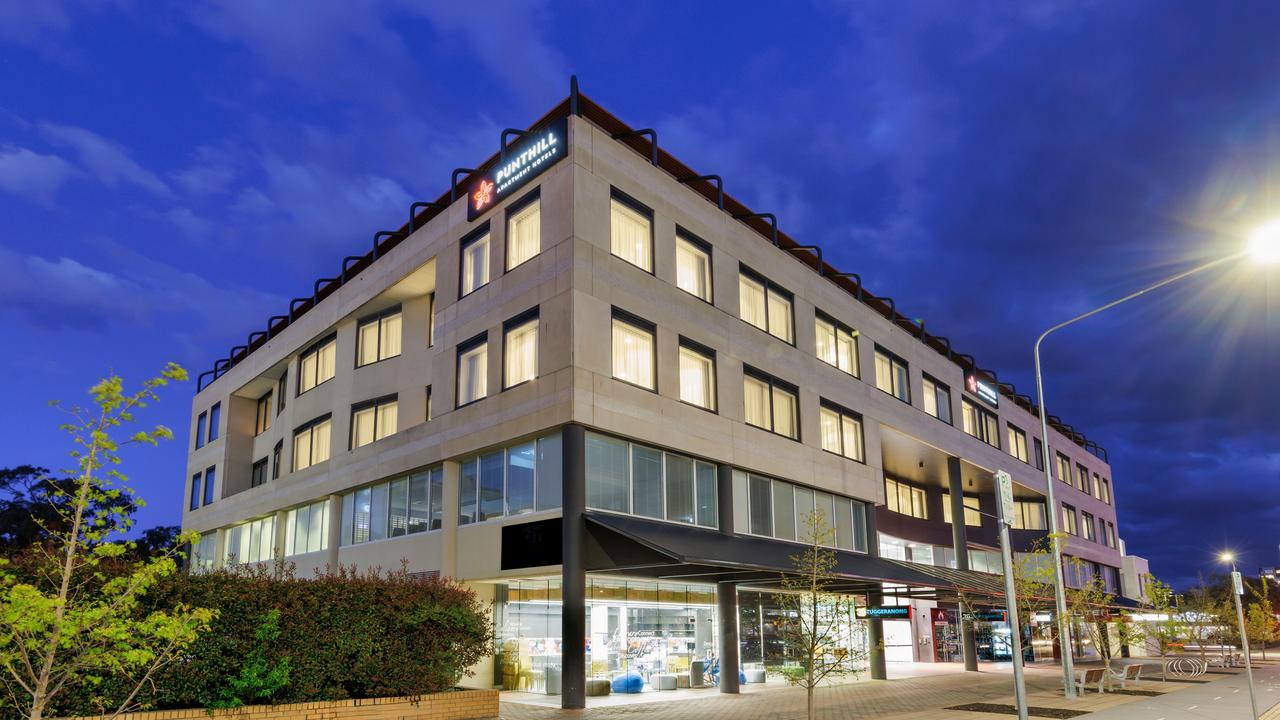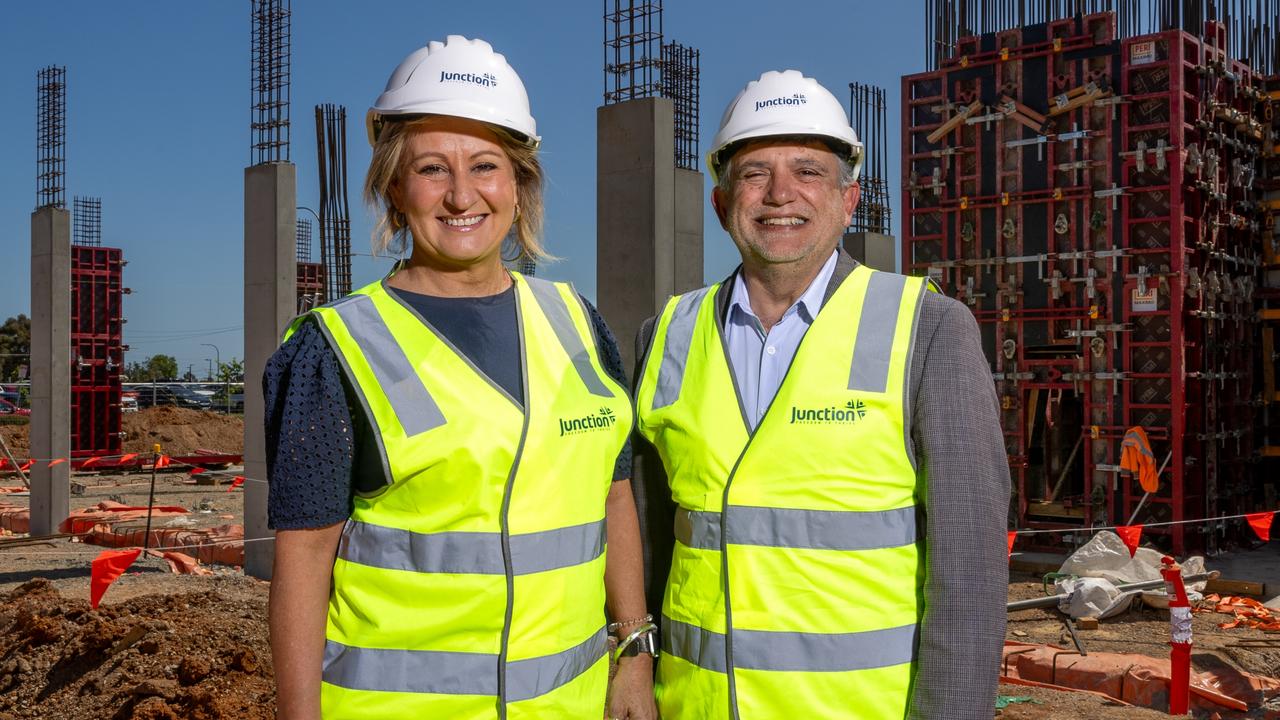Let’s Talk: Our State of Mind reveals SA women need a break from pandemic pressure
Women’s mental health has been pushed aside as pandemic pressure leaves them feeling worse off than men, SA women say.
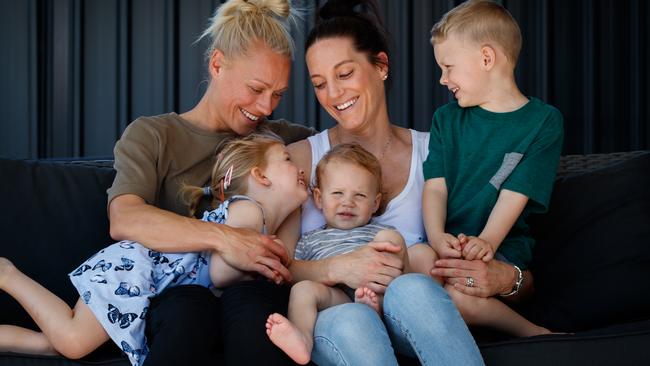
SA News
Don't miss out on the headlines from SA News. Followed categories will be added to My News.
From Hollywood stars to AFLW royalty, South Australian women are calling for a “reset” on mother guilt and gender inequities.
In a joint push to address the most devastating year in women’s mental health in generations, SA women are speaking out for significant change, amid concerns COVID is forcing them “back decades into the kitchen”.
Women from across the state are reporting they are tired but cannot sleep, burnt-out but cannot unwind.
They are more stressed and sad and are not bouncing back as fast as men.
“Juggling motherhood, careers and all the other pressures of life can leave us feeling depleted and running on empty,” said Teresa Palmer, the SA-born actor, producer and mum-of-three.
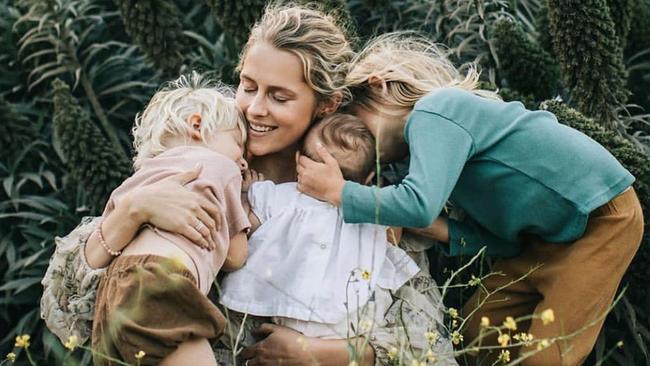
“Which is why it’s vital to carve out time every day to support our mental health and wellbeing.”
It is the universal catchcry that has emerged from the Sunday Mail’s conversations with women and health experts as part of the Let’s Talk: Our State of Mind campaign.
Experts say that while there are causes of stress, anxiety and depression affecting both sexes, women also face gendered factors such as sexual and domestic violence, underemployment, unequal share of domestic duties and unpaid care, workplace gender inequality, discrimination and harassment and financial stress – all of which have been amplified by COVID-19.
University of SA professor Nicholas Procter said women – particularly single mums and those working with children at home, or caring for older parents – were among the key mental health risk groups in the aftermath of COVID-19.
Prof Proctor, Mental Health and Suicide Prevention Group director, said mothers were significantly more likely than fathers to be thinking of downshifting careers or leaving the workforce, with childcare and family responsibilities primary factors.
“The World Economic Forum recently reported increased pressures for women trying to re-enter the workforce after job loss following the impact of COVID-19 and found they were at greater risk of exhaustion and burn out,” he said.
A September survey of SA women aged under 30 found 75 per cent of respondents reported experiencing more anxiety and more sadness and depression since March.
The survey, by the Working Women’s Centre SA, highlighted that dealing with COVID’s ongoing mental health impact on women required addressing gendered unemployment and underemployment through stimulus packages targeting feminised sectors such as the arts, health, social care and education.
SAHMRI Wellbeing and Resilience Centre research and development lead Joep van Agteren said both sexes showed a decline in resilience in April 2020, but women’s levels remained lower than men’s in the latest October wellbeing measures.
Monash University Global Health professor Jane Fisher said her own research after COVID-19 had shown 26 per cent of women had clinically significant symptoms of depression, compared with 20 per cent of men. Almost 22 per cent of women had clinically significant anxiety symptoms, compared with 14 per cent of men.
Prof Fisher said a range of data had shown more women had lost their jobs or had hours reduced, were drinking more alcohol, and were more likely to be living alone with sole care of children.
“We need a social response, not a response that’s limited to specific individual mental health services,” she said.
Black Dog Institute director and chief scientist Professor Helen Christensen said more women were accessing the group’s online programs. She said women were more likely than men to seek help.
She said a “reset” on mental health post-COVID, with a focus on prevention, as opposed to crisis intervention or service provision, was critical. “We know already that it’s possible to prevent depression and anxiety,” she said. “We’ve known this … and yet we don’t seem to put these things in process.”
Beyond Blue chief executive Georgie Harman said: “Women often put the health of others ahead of their own and the pandemic has heightened that sense of responsibility. So now, more than ever, it is really important for women to prioritise themselves.”
Discrimination + unpaid care + isolation = worry
By Rebecca DiGirolamo
These four South Australian women have all been affected by COVID-19 in very different ways, yet they share a common sense of isolation and increased worry affecting their mental health and wellbeing.
Working mum of two Georgie Thain, 27, says her anxiety increased and her hours of sleep declined after her husband became a job casualty of the virus.
Ms Thain, who lives in Adelaide’s northeastern suburbs, has two children under the age of three. “Juggling working from home and caring for children, along with the worry of our financial situation and concern for vulnerable family members was overwhelming at times and I have felt quite isolated,” she said.
While the part-time union organiser is feeling more positive now, she says she worries for the future of all SA women.
Project manager Michelle Hogan, 60, had been looking for work in social housing for three months when COVID hit.
Persistent age discrimination and financial reliance on her partner so as not to further draw down her superannuation saw her mental health decline.
Ms Hogan, from Adelaide’s western suburbs, has sought help from her GP and a counsellor. “I feel I have so much more to contribute,” she says.
International student Manasvi, 22, arrived in Adelaide a month before lockdown. With no time to make friends and 8800km away from her family in India, she was left completely isolated.
“My mental health and wellbeing is definitely worse as a result of it,” said Manasvi, who wished to remain anonymous.
But she said she had shown resilience in reaching out for support, making new social connections and volunteering.
Singapore-born Say Kapsis, 35, said escalating racial abuse against herself and her friends because of their Asian appearance had affected her the most.
Mrs Kapsis, from south of Adelaide, is the founder of Fair GO SA. She said she had sought mental health support but that it was expensive and unsustainable over longer periods.
All four women took part in an ongoing Working Women’s Centre SA survey on the impacts of COVID-19 on young women. More than seven out every 10 respondents said they had become more anxious, more sad or more depressed since March of this year.
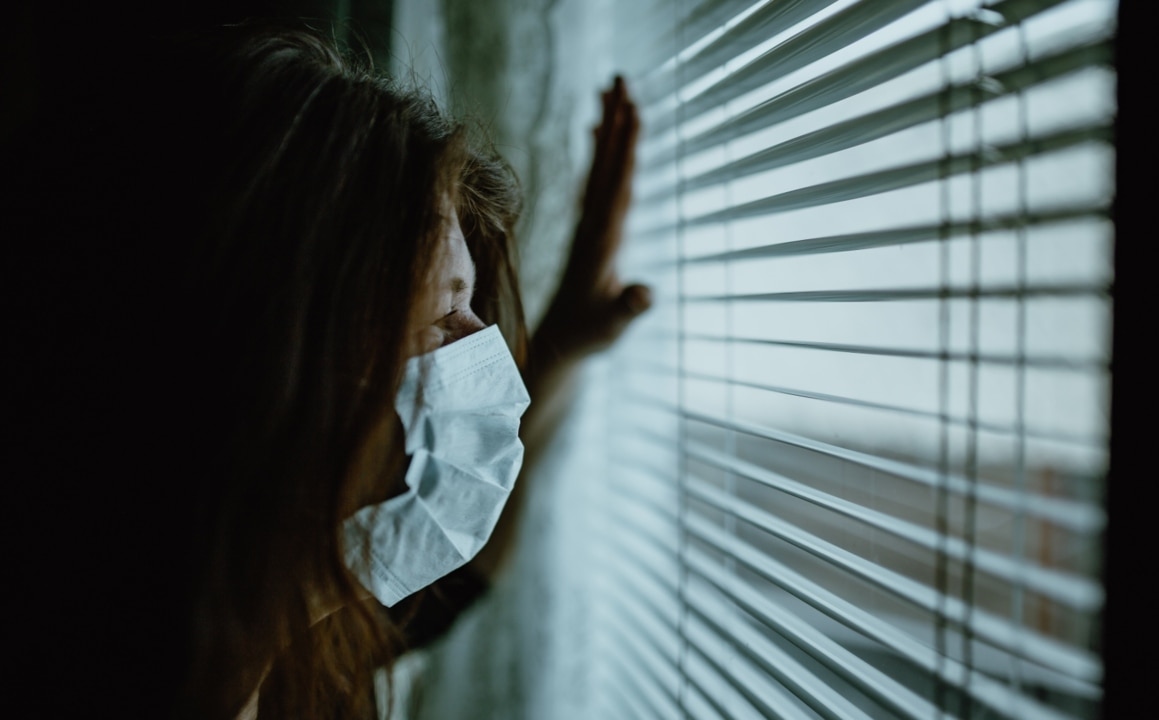
Originally published as Let’s Talk: Our State of Mind reveals SA women need a break from pandemic pressure

